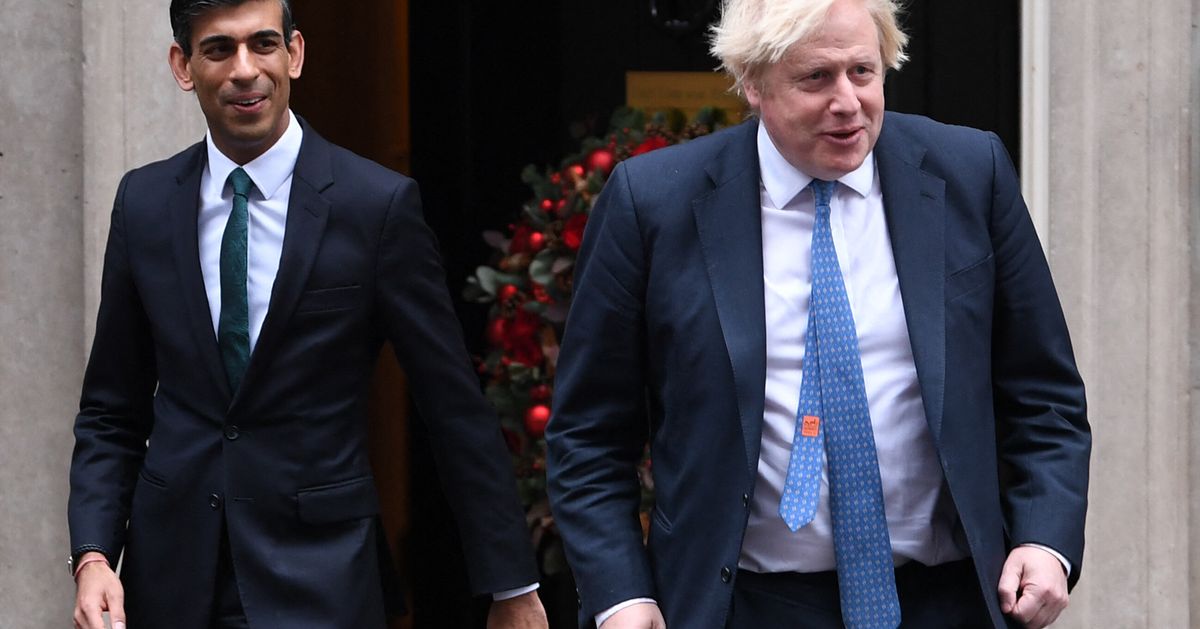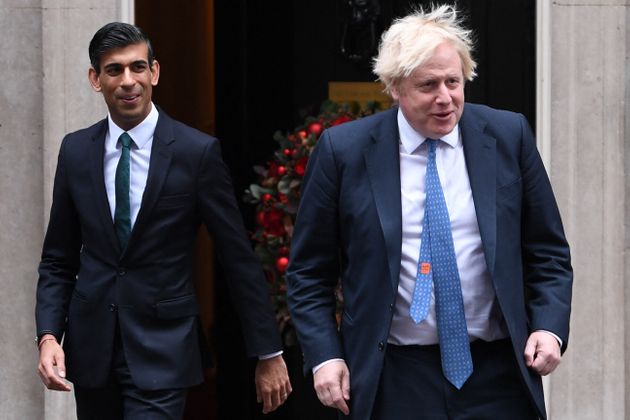
A minister has dismissed claims that Rishi Sunak is blocking the release of messages to the Covid inquiry to avoid exposing a plot against Boris Johnson.
Robert Jenrick insisted the reason for the government’s bid to stop the release of unredacted messages to the inquiry was a “simple legal one”.
Advertisement
It follows an extraordinary argument between ministers and the official inquiry into the pandemic.
The government is trying to block the inquiry’s order to release WhatsApp messages and diaries, arguing that it should not have to hand over material which is “unambiguously irrelevant”.
However, a defiant Johnson has bypassed the government and told the inquiry he is happy to hand over all his own communications from that period.
Allies of the former prime minister claimed Sunak was blocking the release of text messages because it could reveal his plot to bring down Johnson, according to the Mail on Sunday.
Advertisement
Asked about the claims, Jenrick told Sky’s Sophy Ridge on Sunday: “No, as I say, the issue here is a simple legal one.”
Jenrick said Johnson would not be restricted over what he divulged to the Covid inquiry.
But he said it would not be “sensible or reasonable” to hand over ministers’ documents or messages if they are deemed irrelevant to the pandemic.
It comes after cabinet office lawyers wrote to Johnson to warn that money would “cease to be available” if he breaks conditions such as releasing evidence without permission.
He has had legal advice paid for by the taxpayer, but the Sunday Times detailed the letter from government lawyers containing the warning to Johnson.
“The funding offer will cease to be available to you if you knowingly seek to frustrate or undermine, either through your own actions or the actions of others, the government’s position in relation to the inquiry unless there is a clear and irreconcilable conflict of interest on a particular point at issue,” it said.
Advertisement
The cabinet office insisted the letter was “intended to protect public funds” so taxpayer-funded lawyers are not used for any other purpose than aiding the inquiry.
Former culture secretary Nadine Dorries, a staunch ally of the former Tory leader, said it is “not a good look for the government”.
“All evidence provided should be unfettered and not restricted by gov censorship – whatever form that may take,” she tweeted.
Conservative donor Lord Cruddas, an outspoken backer of Johnson, who handed him a peerage, urged the MP not to be “held to ransom” by the threat.
“Don’t worry @BorisJohnson I can easily get your legal fees funded by supporters and crowd funding, it’s easy,” he tweeted.
Advertisement











